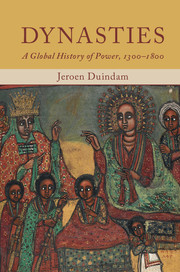Book contents
4 - Realm: connections and interactions
Published online by Cambridge University Press: 05 October 2015
Summary
By his grace they drank and ate. He gave them contentment and he gave them gifts; he bestowed upon them whatsoever they needed.
Sahagún, Florentine Codex: General History of the Things of New Spain, Book 8, ‘Kings and Lords', 54.When the sur was concluded on the fifteenth day
The masses were summoned to join in the fray
No matter how countless the inhabitants o’ the land
Among merchants, the poor and the empty of hand
They hastened one and all to the place of the feasting
To add their high hopes for their sovereign's prospering
So bounteous the food on that day of contentment
That sufficient remained for both fishes and fishermen
When all had completed their measure of duty
The doors of bestowal were opened completely
None remained untouched by the sovereign's bounty
And not the least person's pocket stayed empty of booty
The whole world rejoiced together in the sultan's beneficence
And all, great and small, took their share in his boundless munificence
Ottoman poet Yusuf Nabi (1642–1712) on the 1675 circumcision festival, in Murphey, Ottoman Sovereignty, 203.Heaven is high and the Emperor far away.
Chinese proverb, in Ebrey (ed.),
Chinese Civilization, 281.Virtue, honour, fear
How did the court fit into the larger whole of the kingdom or empire? What made people willing to comply? In The Spirit of the Laws, Montesquieu replaced Aristotle's classic typology of governments ruled by ‘one, several, and many’ with another tripartite scheme: republic, monarchy, and despotism. He assumed that republics, including democracies and aristocracies, were driven by virtue and concern for the common good, whereas monarchies thrived on the principle of honour. Despotic power, finally, was based on fear more than on anything else, with subjects fearing harsh punishments and despots awaiting violent rebellion. Republics gradually moved from democracy to aristocracy and finally to monarchy when their virtue was eroded; monarchies risked tilting towards despotism once their rulers no longer respected either the laws or the honour of their elites.
Aristotle had presented good and degenerated variants for each of the three governments: monarchy/tyranny, aristocracy/oligarchy, polity/ democracy.1 Montesquieu's three forms, however, represent a single line of declining moral fibre. He appears to have viewed the democratic republic as a historic ideal rather than as a practicable form of government, an attitude strengthened by his travel in Italy and in the Dutch Republic.
- Type
- Chapter
- Information
- DynastiesA Global History of Power, 1300–1800, pp. 227 - 285Publisher: Cambridge University PressPrint publication year: 2015



